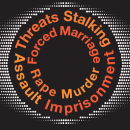
Applying for a job
Information, skills and tips for job applications, CVs and cover letters

Information, skills and tips for job applications, CVs and cover letters

Oxfordshire is a great place to grow up, be successful, and get the help you need help to get the best start in life.

Basic skills are the key skills you need in study and life, and include Maths, English and ICT

Most young people do volunteering in some way or another, and it does them good too!

Figuring out what you want to do for work can be confusing, here are resources to help you explore your options

Child sexual exploitation is a form of child abuse where an adult targets a vulnerable child, often during their teenage years, to sexual abuse them

Using digital devices and mobile phones to hurt, annoy or harass people is bullying. Learn how to use digital devices safely and supportively.

Find out more about the digital and distanced services provided by the Oxfordshire Library Service

Domestic abuse is when someone is being hurt or victimised by their partner. It is a crime.

The Duke of Edinburgh programme helps young people aged 14-24 develop skills and fulfil their potential
The EET Support Service provides one-to-one support for young people aged 16-18 Not in Employment, Education or Training who need extra help to re-engage with learning.

Female Genital Mutilation (FGM) is when a girl’s genitals (private parts) are cut. This is illegal in the UK.

There are all sorts of jobs out there and different ways of applying for them

Thinking about volunteering? Here are some ways to find opportunities

Support is available to help young people access education, training or other opportunities in Oxfordshire

Honour based abuse is illegal in the UK and a serious crime.

You will usually need to do an interview before you get offered a job - find out how to do your best and impress

Think safety, whether you are at work, doing work experience, or seeking work

Local libraries offer plenty of things to read, borrow, watch and listen to, mostly for free!

Local training providers offer alternative options for 16+ learning, including community-based programmes, engagement, and specialist support